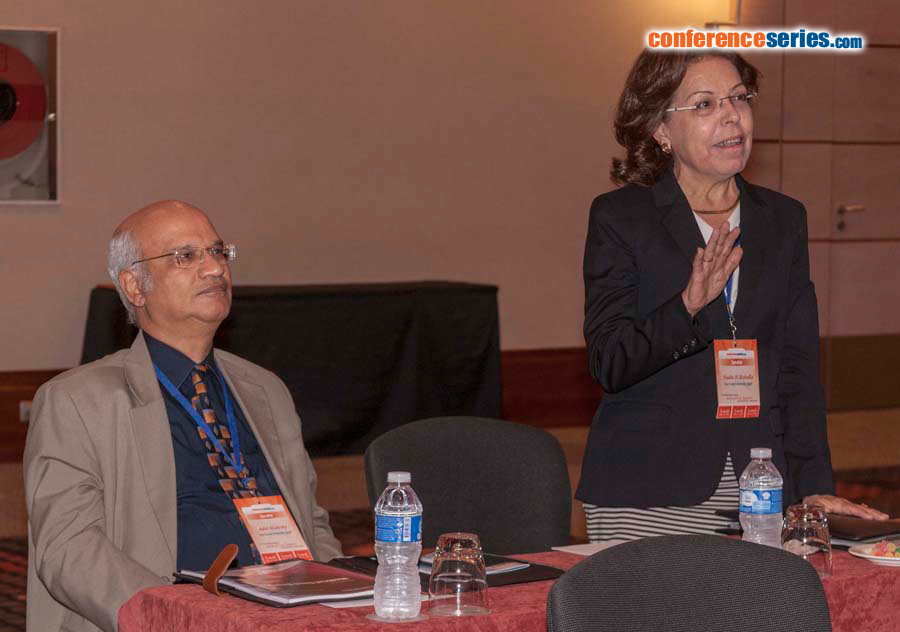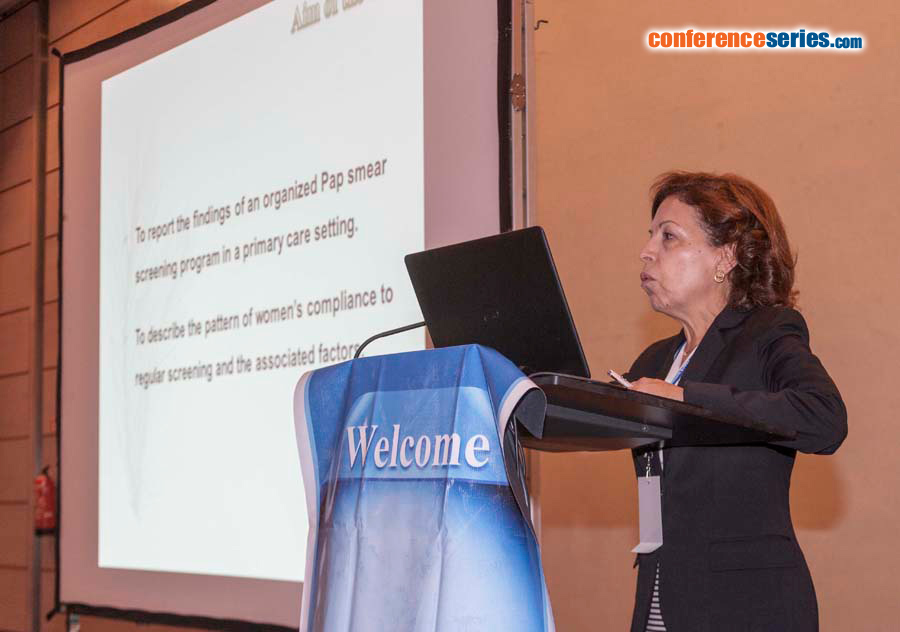
Nadia H. Rizkalla
Professor, Suez Canal University, Egypt
Title: Pap smear screening in a primary care setting in Saudi Arabia
Biography
Biography: Nadia H. Rizkalla
Abstract
Objective: To report the findings of an organized Pap smear screening program in a primary care setting and describe the pattern of women’s compliance to screening. Methods: The study was conducted in the Department of Family and Community Medicine at Prince Sultan Military Medical City in Riyadh, Saudi Arabia. The data were the archives of women registered in the Papanicolaou (Pap) smears testing program at the Maternal Care Centers from the start of the program in 2003 to 2010. Results: Of 2184 women, age between 16 and 81 years, 74.1% had their first Pap smear done and 37 (2.4%) had abnormalities. Only 6.7% had their second smear and 5 (3.1%) had abnormalities. Among 23 women who had their third smear, 1 (4.3%) had atypical squamous cells and 1 (4.3%) had Human Papilloma Virus (HPV) changes. In multivariate analysis, woman working status was the most important predictor of her having a Pap smear done along with intake of oral pills and higher parity. Abnormal test finding is predicted by intake of oral contraceptive pills. Conclusion: This study shows low women’s compliance with screening, particularly at the extremes of age and among housewives. Pap smear changes are low and are related to use of contraceptive pills. More effort is needed to increase women's compliance with Pap smear screening guidelines





